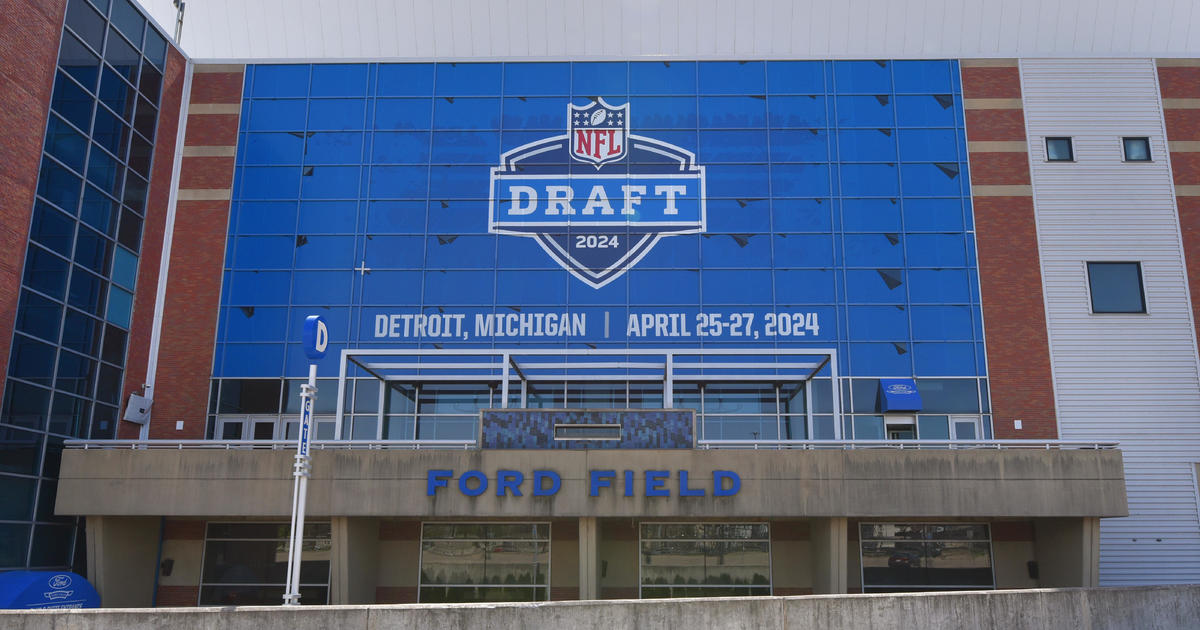Gov. Rick Snyder Under Siege Over Racial Impact Of Strategy
LANSING (AP) - When Gov. Rick Snyder was elected in 2010, he bragged about being a "tough nerd" who'd use his business background to fix Michigan's sagging economy and debt-wracked cities. He led Detroit through the largest municipal bankruptcy in U.S. history. He cut corporate taxes. He was mentioned as a possible presidential candidate.
Now he's a governor under siege, his successes overshadowed by the lead-tainted water crisis in Flint and the turmoil in Detroit public schools — both of which have drawn accusations that the Republican former tax accountant and venture capitalist is dismissive and patronizing toward poor black residents.
At the center of those complaints is his use of a Michigan law to exert near-total control of distressed cities and school districts. "Emergency managers" appointed by the state can break labor contracts and consolidate services without input from elected officials or residents. During his tenure, Snyder has had eight cities and three school districts under state control, most with majority black populations and black elected leaders.
The financial overhauls have disenfranchised huge swaths of residents and relegated them to second-class citizens, some charge.
"People have died for the right to vote. They've been beaten, had dogs sicced on them, had hoses sicced on them, been put in jail. It's a very precious thing when you're talking to the African-American community," said state Sen. Coleman Young II, a Detroit Democrat whose late father was mayor for 20 years. "For them to ... come in there and to take it away from them is despicable."
The criticism has intensified since a state-appointed official decided to switch the city of Flint, which is almost 60 percent black, to a new drinking water source to save money. The change-over was botched, allowing water to leach lead from old pipes; then Snyder was slow to respond to the growing health crisis.
In Detroit, attempts to restructure the school district led to a two-day teacher sick-out that idled 45,000 children. The schools reopened Wednesday after teachers received assurances from the financially struggling district that they would continue to be paid.
Snyder, who'd never held elective office, swept to victory when Michigan was still struggling to recover from decades of manufacturing job losses compounded by the Great Recession, with an unemployment rate hovering around 11 percent. His turn-around vision would succeed where his predecessor's didn't, he said, because of his business prowess.
Although the laws allowing appointment of emergency managers had been on the books for years, he used them aggressively, especially in the state's largest city.
In a bold move, he led Detroit through a bankruptcy that cancelled its debt and earned him wide praise, said Matt Grossmann, director of the Institute for Public Policy and Social Research at Michigan State University.
"A lot of people didn't think it would work, but it did," Grossmann said.
Since 2013 when the city entered bankruptcy, more than $3 billion in investment and development has been announced in the city, according the Chamber of Commerce.
But critics say the success may have made it easier for Snyder and his aides to shrug off the complaints of residents in other cities that were being overhauled. In Flint, residents complained that the water appeared tainted but the state insisted for 18 months that it was safe to drink until finally acknowledging the problem.
"What made bankruptcy easier in Detroit poisoned folks in Flint," said Anthony Paris, an attorney at the Jane Sugar Law Center in Detroit, which has sued Snyder's administration over the emergency manager law.
Snyder is now struggling to convince African-American residents that he's interested in more than money. At an appearance in Flint Wednesday with President Obama, he was booed loudly by the crowd.
State Sen. Goeff Hansen, a Republican whose Michigan district includes Muskegon Heights, whose school district was converted entirely to charter schools while under state control, said that residents must understand that when financial problems are especially deep, local leaders will have to give up control.
"There's a problem where they're going," Hansen said, referring to the emergency managers Snyder has appointed. "I don't think it has anything to do with race because they're only looking at the financial status in these places. There is no racial bias in financial status."
A Snyder spokesman said the governor is not dismissive of black residents in state-controlled cities and schools.
"A community struggling to maintain fiscal stability is what drives decisions over emergency management, not who lives in the city," Snyder spokesman Ari Adler said.
But others say that claim is dubious. John Philo, legal director at the Jane Sugar Law Center, said the state hasn't taken control of several financially troubled cities in more rural and white areas.
Grossmann, from Michigan State, said it's also debatable whether it's necessary to seize control of a city in order to address its financial problems, especially those stemming largely from job and population losses.
Paris, from the Jane Sugar Law Center, said Snyder will be remembered in the future not only for the Detroit turnaround but for the distress of black residents in Flint.
"If one person is in charge and makes mistakes without accountability, you're going to see lot of problems," he said.
Copyright 2016 The Associated Press. All rights reserved. This material may not be published, broadcast, rewritten or redistributed.



